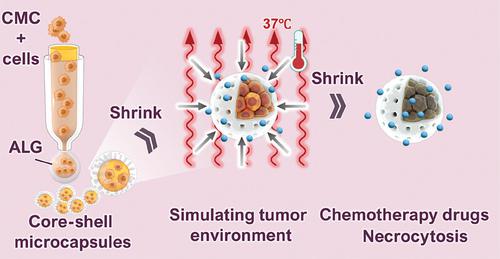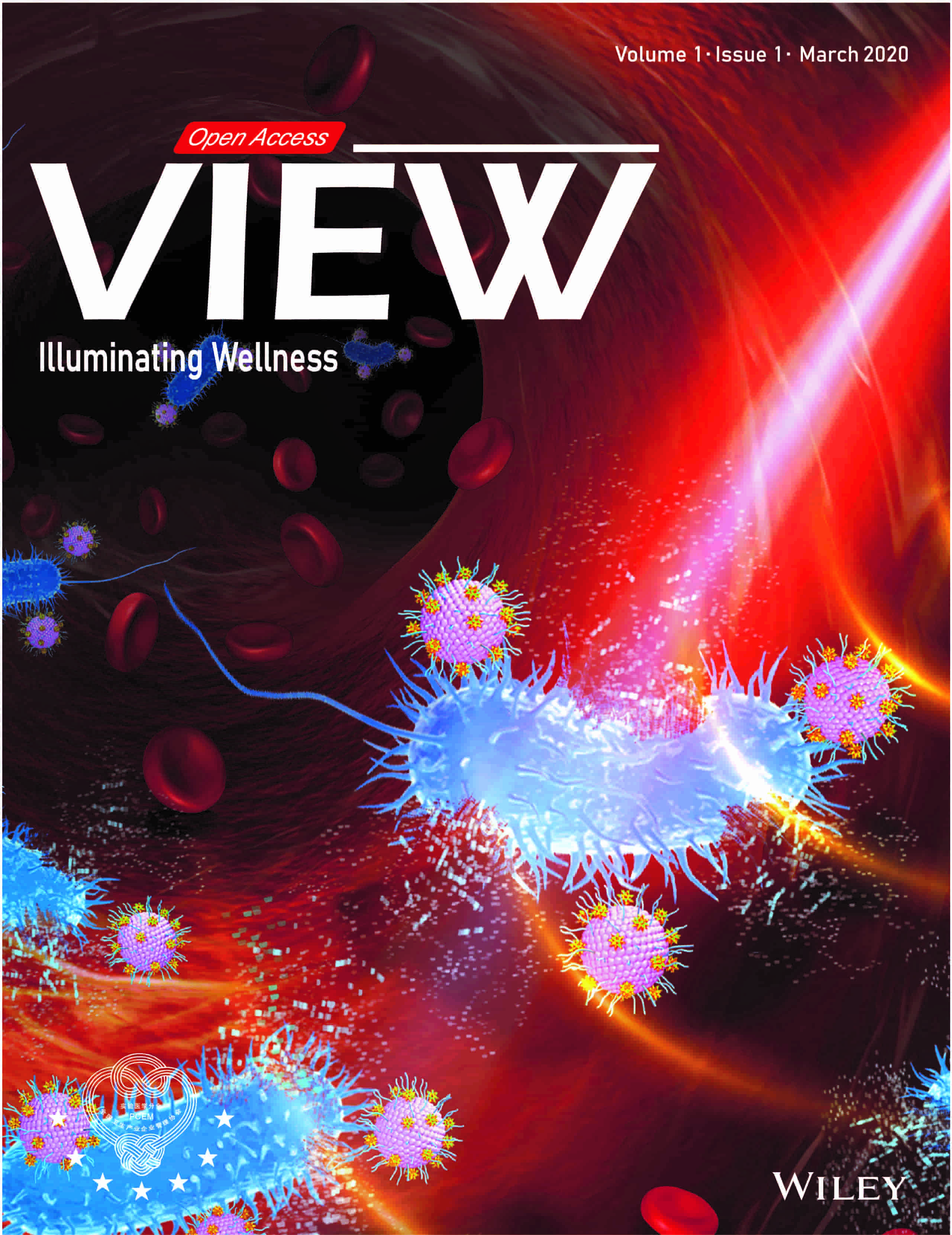反应性水凝胶微胶囊用于胰腺癌细胞系的药物评价
IF 8.5
4区 医学
Q1 MATERIALS SCIENCE, BIOMATERIALS
引用次数: 0
摘要
药物治疗是胰腺癌患者全身治疗的基石。然而,由于缺乏合理的肿瘤模型,胰腺癌复杂的微环境往往阻碍了药物评价的相对结果。在这里,我们提出了一种新的平台,将胰腺腺癌细胞包裹在水凝胶微胶囊中,用于三维肿瘤培养和抗肿瘤药物评估。这些水凝胶微胶囊含有海藻酸盐/聚(n -异丙基丙烯酰胺)(海藻酸盐/PNIPAM)外壳和羧甲基纤维素芯,它们是通过微流控电喷雾技术产生的。微胶囊具有对温度的快速响应特性,可以调节内部压力环境。此外,得益于这些微胶囊良好的单分散性、精确的尺寸控制和生物相容性,这些被包裹的肿瘤细胞具有自发增殖的能力,形成具有良好细胞活力的三维肿瘤球体。我们已经证明,不同浓度PNIPAM复合微胶囊包被的胰腺腺癌细胞表现出不同的药物敏感性,这可能归因于外部压力环境的影响。这些结果表明,这些反应性微胶囊包被的肿瘤球体在抗肿瘤药物敏感性分析中具有很大的潜力。本文章由计算机程序翻译,如有差异,请以英文原文为准。

Pancreatic cancer cell line in responsive hydrogel microcapsules for drug evaluation
Drug therapies are the cornerstone of systemic treatment for pancreatic cancer patients. However, the relative outcome of drug evaluation is often hampered by the complex microenvironment of pancreatic cancer due to the lack of reasonable tumor models. Here, we proposed a novel platform that integrated pancreatic adenocarcinoma cells encapsulated into hydrogel microcapsules for three-dimensional (3D) tumor cultivation and antitumor agent evaluation. These hydrogel microcapsules contain alginate/poly (N-isopropyl acrylamide) (alginate/PNIPAM) shells and carboxymethyl cellulose cores, which are generated through the microfluidic electrospray technique. The microcapsules have the feature of rapid response to temperature, by which they can regulate the internal pressure environment. Besides, benefiting from good monodispersity, precise size control, and biocompatibility of these microcapsules, these wrapped tumor cells have the capacity for proliferating spontaneously and forming 3D tumor spheroids with good cell viability. We have demonstrated that pancreatic adenocarcinoma cells encapsulated in the composite microcapsules with different PNIPAM concentrations showed different drug sensitivity, which could be ascribed to the influence of external pressures environment. These results indicate that the tumor spheroids coated in these responsive microcapsules have great potential in the analysis of antitumor drug sensitivity.
求助全文
通过发布文献求助,成功后即可免费获取论文全文。
去求助
来源期刊

VIEW
Multiple-
CiteScore
12.60
自引率
2.30%
发文量
0
审稿时长
10 weeks
期刊介绍:
View publishes scientific articles studying novel crucial contributions in the areas of Biomaterials and General Chemistry. View features original academic papers which go through peer review by experts in the given subject area.View encourages submissions from the research community where the priority will be on the originality and the practical impact of the reported research.
 求助内容:
求助内容: 应助结果提醒方式:
应助结果提醒方式:


